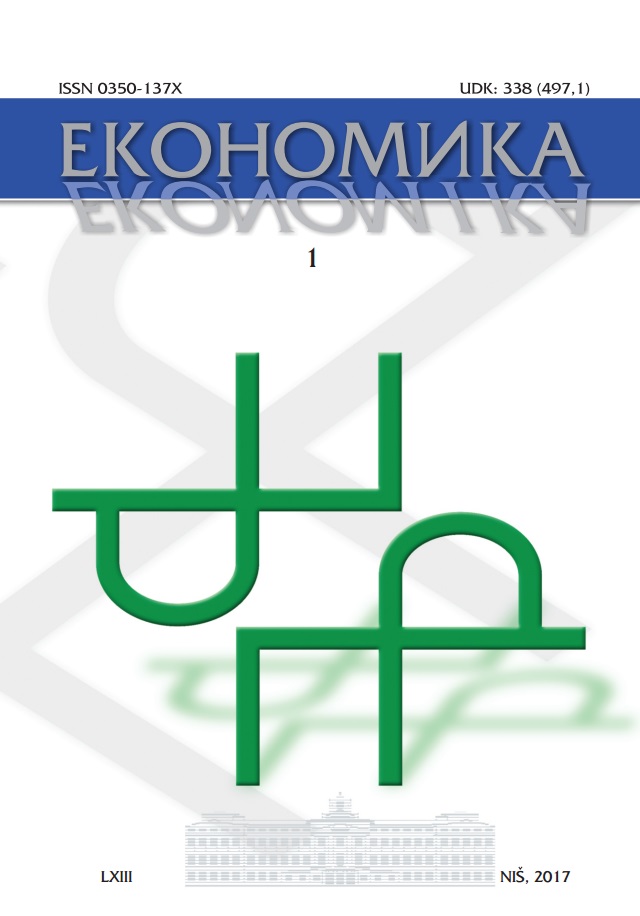QUESTION ABOVE ALL QUESTIONS FOR SERBIA IN 2016 IS THE REFORM OF THE STATE-OWNED ENTERPRISES
QUESTION ABOVE ALL QUESTIONS FOR SERBIA IN 2016 IS THE REFORM OF THE STATE-OWNED ENTERPRISES
Author(s): Borivoje B. Prokopović, Živojin B. ProkopovićSubject(s): Economy, National Economy
Published by: Društvo ekonomista "Ekonomika" Niš
Keywords: Economic growth;strategies;investments;state-owned enterprises;transition;fiscal consolidation;the IMF;
Summary/Abstract: No matter how much we try, not everything depends on us, because we are part of the world - the global economy. But just because of that, we have to be clear about this, what is our real core problem: whether the state as “too big consumer”, as “soft as income,” or something else. In our country today is more than a debate on the consolidation of the measures of growth and development, which is also rational to ask a question the presence of Serbian strategy, or whether the research and the experience of others in this area. It is generally known that the market economy is an indispensable element of any well-ordered society, and Serbia at this point did little steps to get closer to such an economy than it was at the end of the previous government. The only thing that has been done is that it was started - not complete - financial consolidation, which is a necessary, because it is inevitable. However, fiscal consolidation is not reform, because it does not represent the transformation of the economy and society. In the center of each of the market economy and well-ordered society must be an individual, and an individual who cares about itself and shall bear all the consequences of their decisions, and thus the responsibility for them. For such a society apply firm rules of the game which is not carried out, and within each of them take care of themselves and their environment. The choice we are facing today in the Serbian society is a choice between establishing a full market economy and promoting various forms of pluralism in property relations
Journal: Економика - Часопис за економску теорију и праксу и друштвена питања
- Issue Year: 2016
- Issue No: 3
- Page Range: 35-46
- Page Count: 10
- Language: English

